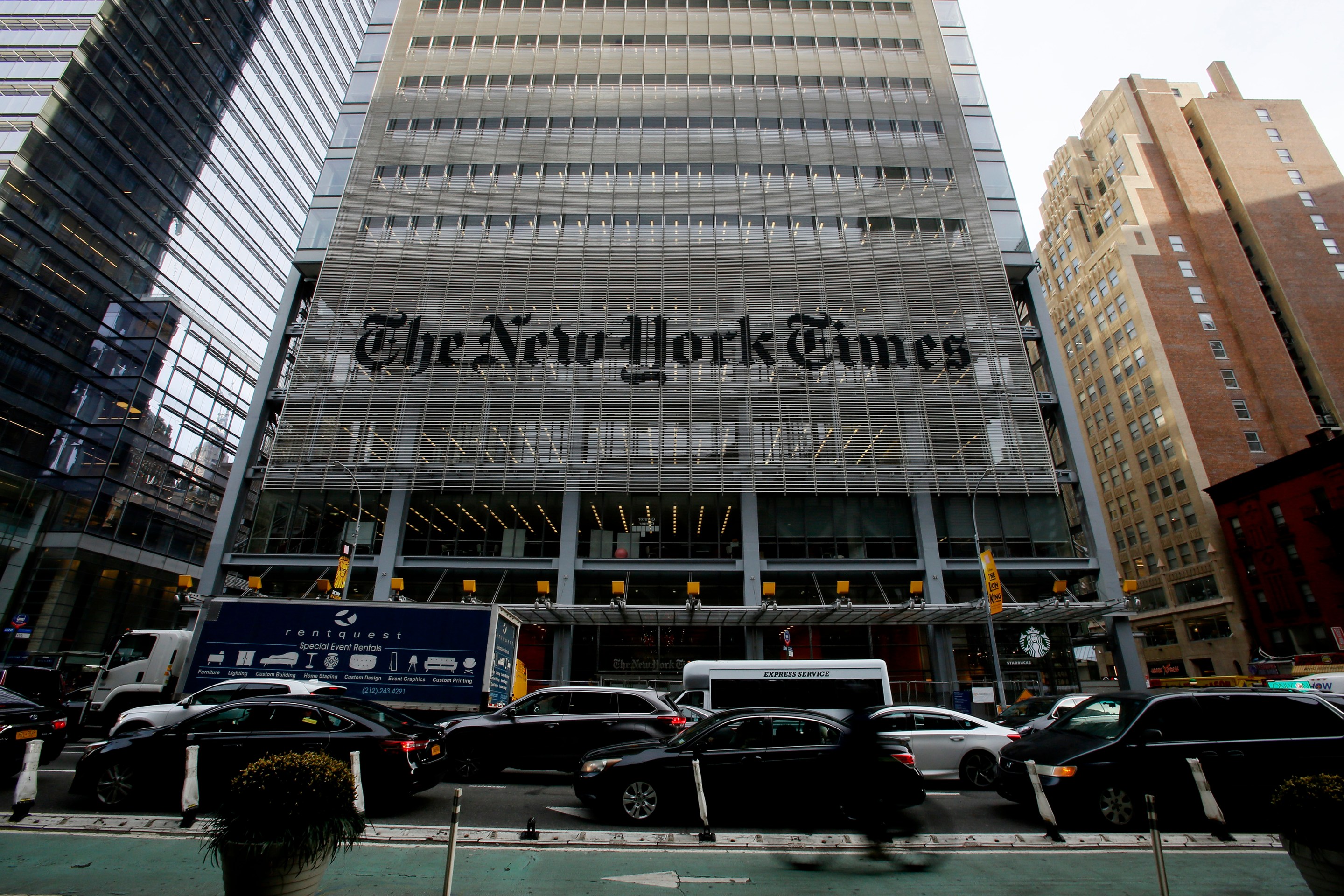A flurry of competing letters concerning the New York Times' coverage of trans people has raised important questions about speech, open debate, and journalism.
Last week, hundreds of New York Times contributors signed a letter criticizing the paper's coverage of transgender issues, specifically its reporting on healthcare for trans kids. Times executive editor Joe Kahn and opinion editor Katie Kingsbury responded with their own letter, reprimanding Times journalists who signed their name. "Participation in such a campaign is against the letter and spirit of our ethics policy,” they wrote. “We do not welcome, and will not tolerate, participation by Times journalists in protests organized by advocacy groups or attacks on colleagues on social media and other public forums."
Susan DeCarava, the president of the NewsGuild, which represents Times editorial employees, then wrote a letter responding to Kahn and Kingsbury, defending Times employees' right to criticize their working conditions. DeCarava wrote that workers are "protected in collectively raising concerns that conditions of their employment constitute a hostile working environment." Another group of Times reporters, led by reporter Jeremy Peters, who recently declared Elon Musk's politics to be confounding and unknowable, wrote a letter blasting DeCarava and defending the paper's coverage of transgender issues. "Our duty is to be independent. We pursue the facts wherever they may lead. We are journalists, not activists. That line should be clear," it said, the "should" at least allowing for the possibility that this line may be, in reality, not clear at all.
Now the Times is making clear what they meant by not tolerating criticism of its coverage. The Washington Post's Erik Wemple reports that, per the union, NewsGuild members at the Times have been called into "investigatory meetings." The Daily Beast also reports that "some Guild members who signed the letter critical of their paper’s coverage have been called in for questioning, with disciplinary proceedings apparently under discussion." A current New York Times staffer, who spoke on the condition of anonymity for fear of retribution by management, confirmed this to Defector, saying that multiple people who signed the initial letter have received an email from HR asking them to confirm that they signed the letter; they were then called into meetings with management in which they were scolded for speaking out about their workplace, and warned not do so again. The New York Times did not respond to a request for comment.
In recent years, numerous pundits and public intellectuals have taken up rhetorical arms against what they see as a pervasive culture of intolerance to opposing viewpoints, and hostility to open debate. So, in the spirit of open debate, Defector reached out to several of the most prominent free speech advocates working today, to engage them in a lively dialogue about the many complex speech issues raised by this story.
Defector
What do you make of the New York Times retaliating against employees who signed the initial letter, which was critical of Times coverage? Do you see this as an infringement on their free speech or something with a chilling effect on open debate?
Matthew Yglesias
Matthew Yglesias did not respond.
Jonathan Chait
Jonathan Chait did not respond.
Yascha Mounk
Yascha Mounk did not respond.
Caitlin Flanagan
Caitlin Flanagan did not respond.
Jonathan Haidt
Jonathan Haidt did not respond.
Bari Weiss
Bari Weiss did not respond.
Steven Pinker
"Sorry to have missed your deadline – no way I could have responded that quickly. I wouldn’t have had anything to say in any case – the link you contained only vague rumors and insinuations, so there was nothing to comment on."
(Defector followed up with additional detail on the Times cracking down on employees. We will update if we hear back.)






